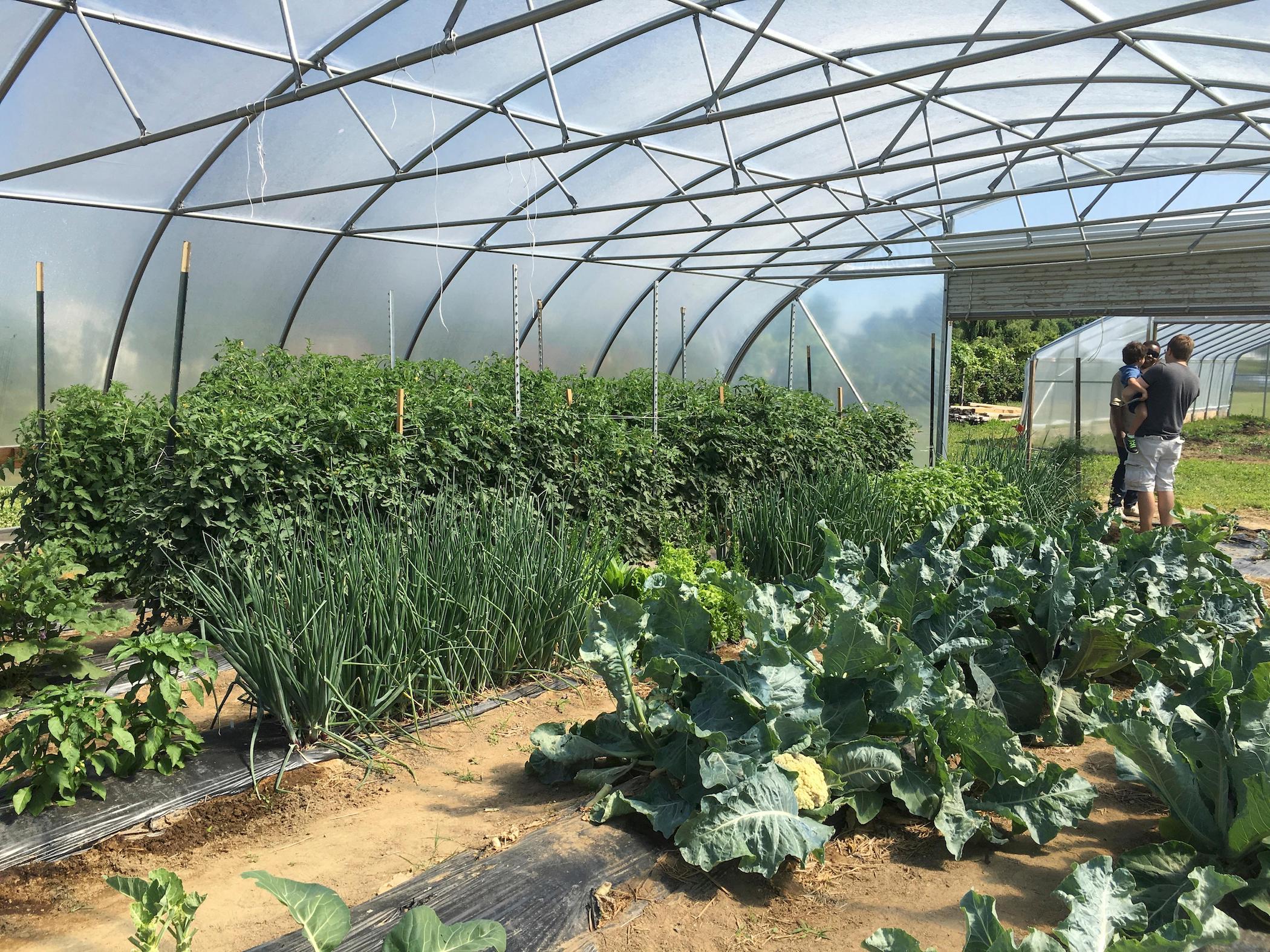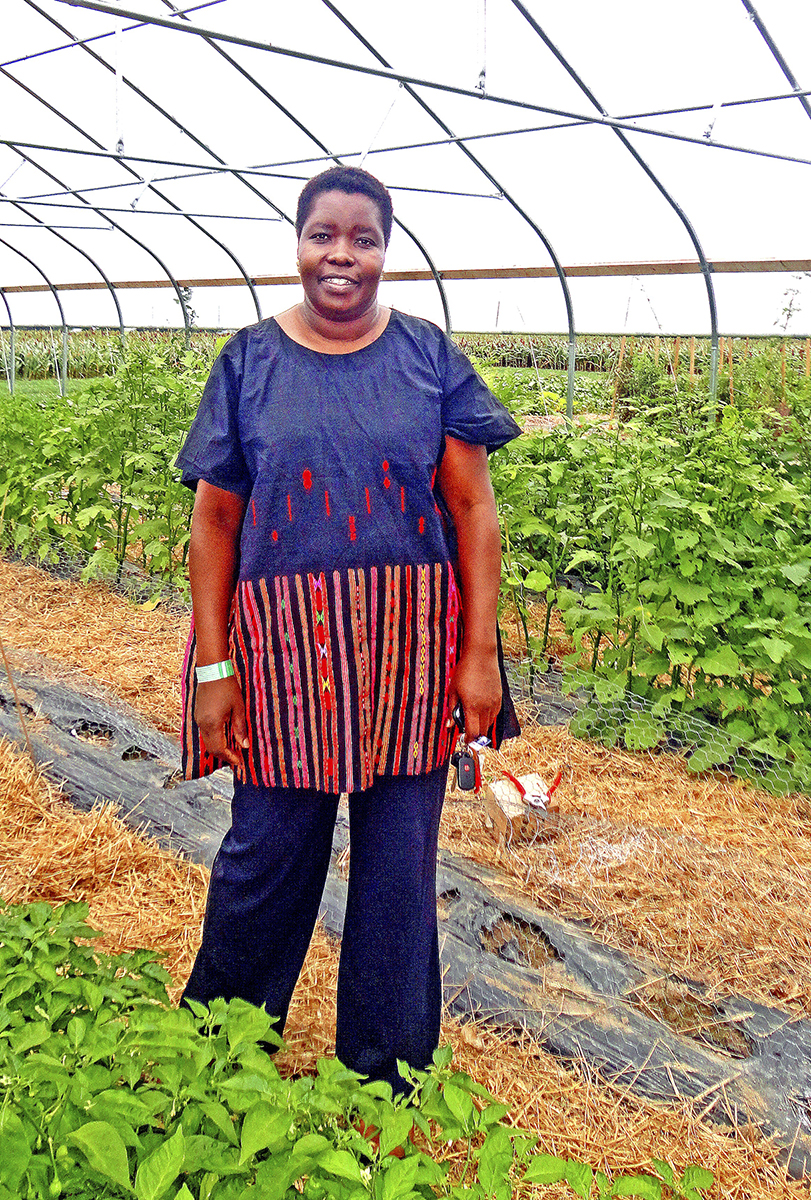
USDA spotlights DSU’s Climate Hub demonstration project
Delaware State University and the United States Department of Agriculture (USDA) partnered to create a tour as part of “As if You Were There”. The project highlights key climate adaptation practices at farm and forest sites within the region. Through interactive 360-degree photography and videos, users can embark on virtual field tours. The Delaware State University (DSU) Outreach & Research Center is one of the featured locations in this USDA Northeast Climate Hub virtual demonstration project.
Land grant universities across the northeast region collaborated with the USDA on the “As if You Were There” effort. Professor and Natural Resources Extension Specialist Dr. Gulnihal Ozbay and Horticulture Extension Specialist Dr. Rose Ogutu serve as DSU’s liaisons to the Northeast Climate Hub. They worked with USDA Northeast Climate Hub and with Jennifer Volk, University of Delaware’s associate director of Cooperative Extension, to produce a comprehensive demonstration of the research that informs how DSU farms adapt to the changing climate.
“Many of the adaptation practices being investigated by universities in our region are practices that farmers can use right now,” Volk said. “They can make their operations more resilient to current temperature and precipitation conditions. I get the sense that most people think about some far-off distant future when we talk about climate change and that seems very unknown and unpredictable. Our weather stations show temperatures have been increasing; we have recently experienced some pretty extreme rainfall. It is important to share strategies for immediate benefits, which will also put us in a better position to deal with the uncertainties of the future.”
Visitors can see how others in the Northeast are adapting to the changes in climate. Researchers demonstrate how to adapt through sharing their experiences. New ideas and techniques are showcased. The project transports viewers directly into what climate resilience planning looks like in real-time.
Dr. Ozbay shares her colleagues’ excitement about the project and how it will prove helpful to students. “Virtual farm tours have been attracting a number of students to consider agriculture for their future career or as part of their lifestyle. For instance, my intern, Mr. Romuald Kenmegne, a senior in the pre-engineering program, is interested in building his own farm.”
“The purpose of this project is to harness new technology, combined with educational storytelling, to engage more people in climate-informed decision-making,” said Erin Lane, Coordinator for the USDA Northeast Climate Hub and a leader for this project. “We want to help capture and share the stories of innovative land managers and researchers. The intent is to provide our audience with an interactive experience that will create greater understanding and inspiration. The tours are designed to make you feel ‘as if you were there.’ ”
Farmers are adapting as average temperatures increase and heavy rain events become more frequent across the Northeastern United States. Research faculty and Cooperative Extension specialists at DSU demonstrate a variety of practices to help local producers learn how to adapt to a changing climate. DSU has constructed several different styles of high tunnel houses to demonstrate the pros and cons of each type to their local growers. They have both Quonset and gothic shaped houses. Styles include peaked, round, and vented roof houses with different types of doors and options for side ventilation. Additionally, the houses are situated in both north-south and east-west orientations to demonstrate the potential differences in temperature and airflow.
High tunnels can extend the growing season by providing warmer temperatures in the shoulder seasons. They provide shelter from rain allowing more control of water resources. Also, crops grown in high tunnels tend to be affected by fewer pests. Take our tour to learn how these features helped high tunnel tomatoes outperform field tomatoes during two very different years in Delaware. During the tour, Dr. Ogutu details the crops that growers can consider planting in their high tunnels each season and includes planting and growing considerations. Organic production, cover crops and the use of biochar are also discussed as you tour through tunnel houses and around the farm at Delaware State University’s Outreach and Research Center.

“Some crops, like tomatoes, are sensitive to excess moisture. Since the occurrence and severity of storms is expected to increase as climate changes, the use of high tunnels may become increasingly important.” - Dr. Rose Ogutu, Horticulture Specialist, Delaware State University

Screenshot from 360-degree virtual tour

